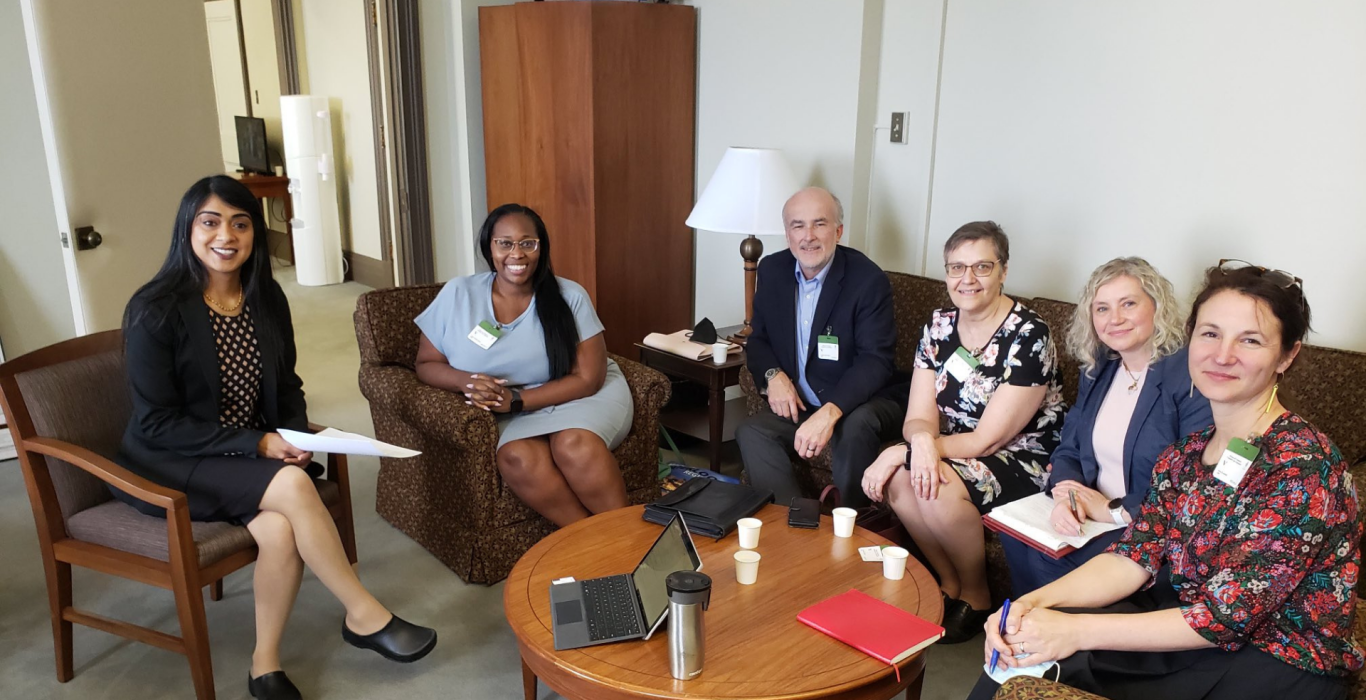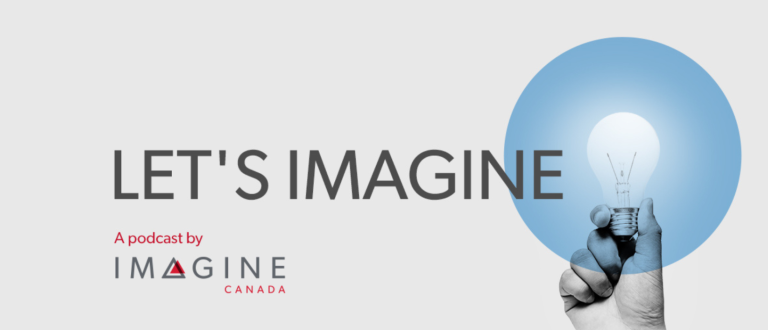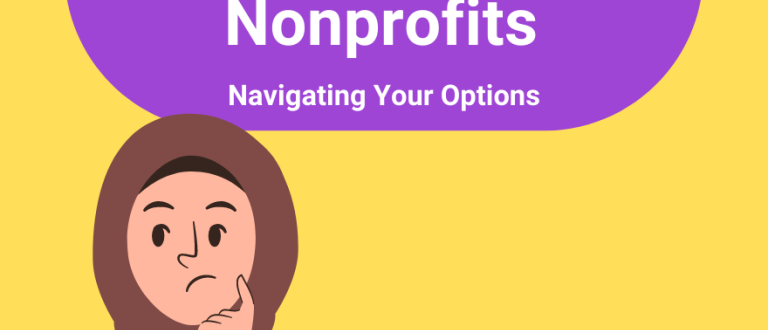Left to Right: Bardish Chagger (MP Waterloo), Tanya Hayles (Black Moms Connection), John Clayton (Samaritan’s Purse), Cathy Barr (Imagine Canada), Cathy Taylor (ONN), Sara Krynitzki (PFC).
“Hill Days are an important tool for nonprofit organizations seeking to impact policy development”
This spring, Canadian charities and nonprofits were quick to respond to the federal budget, and changes that were being proposed for our sector. On a relatively short timeline, a tentatively proposed “Hill Day” was urgently reframed to address the proposed changes to ‘direction & control’ in the Income Tax Act. One of many ways to advocate, this Hill Day was a reactive measure that connected with (and supported) broader advocacy efforts throughout the sector. The Hill Day efforts were seen to have a direct impact on decision making. We’re sharing our experience organizing this event so it can help others new to advocacy or who have never organized a Hill Day before.
What is a Hill Day?
A cornerstone of government relations activities, a ‘Hill Day’ is when a group of representatives travel to Parliament Hill for a concentrated day of meetings on their policy priority in the hopes of changing minds, creating relationships, and building momentum on issues.
At their minimum, they are reactive to ongoing changes in the policy landscape, and at maximum, are opportunities to proactively highlight the future goals of a sector. Over the course of several days, these rapid-fire meetings seek to connect with a broad range of legislators, political staff, and government officials, and raise awareness for a sector’s entire agenda of issues.
Imagine Canada had previously held several Hill Days with representatives from a range of charitable organizations and nonprofits. Following the pandemic, this was our first edition of a new form of Hill Day, organized in response to changes in the Canadian Income Tax Act, a foundational shift for the ways in which charities and nonprofits would be able to work together.
How to organize a Hill Day event?
Timelines and staff capacity are key. If either is limited, you may need the help of a coalition or a funding partner, to hire a government relations firm. Over the course of the spring, Imagine Canada secured funding to engage the services of a government relations firm to handle the concrete logistics of the Hill Day (scheduling meetings, providing meeting space, strategic outreach to political staff). Next, twelve organizations with profound interest in direction and control were identified. They were invited to participate online or in-person, or encouraged to pass along the invitation to other organizations that might be similarly interested. Once confirmed, the delegates were divided into smaller ‘teams’, in order to be able to attend a maximum number of meetings.
Imagine Canada developed a strategic list of parliamentarians to meet with, with direct contact to the issue of direction & control. Cabinet ministers, committee members, opposition critics, caucus leaders, and MPs with charitable experience were all targeted for meetings.
A brief was then co-developed by the participating organizations, with specific calls to action for legislators. Approximately 30 meetings were scheduled, and this brief was shared with each office prior to the gathering. Delegates shared passionate examples and stories in order to form a connection with MPs and their fellow delegates.
At the close of the meeting, MPs were encouraged to review the tangible proposals our coalition proposed for changing legislation. They also frequently suggested other colleagues to meet with, or ways in which the delegation could support their interventions on the issue.
Raising Awareness:
An important final component of Hill Day is reaching out to journalists and industry publications which may find the event (and its focus) of interest to their audiences. Drafting a media release to clearly explain the issue can drum up attention in advance of a Hill Day. This is a powerful tool for advocacy, and can have the double benefit of increasing the number of meetings, and increasing awareness of the issue.
In our Hill Day efforts, Imagine Canada developed a rapid social media campaign, which connected us with several platforms that published pieces on the advocacy efforts and then requested to interview delegates and hear about their experiences. We also allowed a journalist to ‘shadow’ our participants, which provided a behind-the-scenes look at this advocacy.
Lessons Learned from this Hill Day:
- A hybrid approach is necessary: Both parliamentarians and delegates were scattered across the country, and connecting in a digital space complemented any in-person meetings, growing the number of possible meetings for delegates
- Delegate engagement is key: For this edition of Hill Day, we sought collaborators and delegates who were at the center of the direction & control issue: non-qualified donnees and institutional donor organizations.
- Supporting delegates with different capacities: As a best practice, support should be offered for organizations who are new to federal advocacy, and this can take the form of knowledge sharing, financial support, and delegate training (and ideally all three!)
- Express your lived experience and expertise: The most impactful statements came from practitioners who live and breathe for the work that would be affected by legislation changes, and raising these in meetings was very effective.
- Bring a proposal for a ‘better way’ solution: Building consensus starts with proposing collaborative changes, and not negating the intentions of political or department officials.
Going forward, we hope to continue to convene groups of Canadian charities and nonprofits for Hill Days, and support other organizations in the sector who seek to organize their own initiatives. Should this sort of advocacy work be of interest to your organization, do not hesitate to get in contact with our Public Policy team at publicpolicy@imaginecanada.ca.
We'd like to thank the delegation of 12 organizations that joined us for two days of advocacy in May 2022:
- Samaritan’s Purse
- Ontario Nonprofit Network
- Philanthropic Foundations Canada
- Black Mom’s Connection
- United Way Canada
- The Circle on Philanthropy and Indigenous Peoples in Canada
- Cooperation Canada
- Foundation for Black Communities
- Imagine Canada
- McConnell Foundation
- Engineers without Borders
- Network for the Advancement of Black Communities



